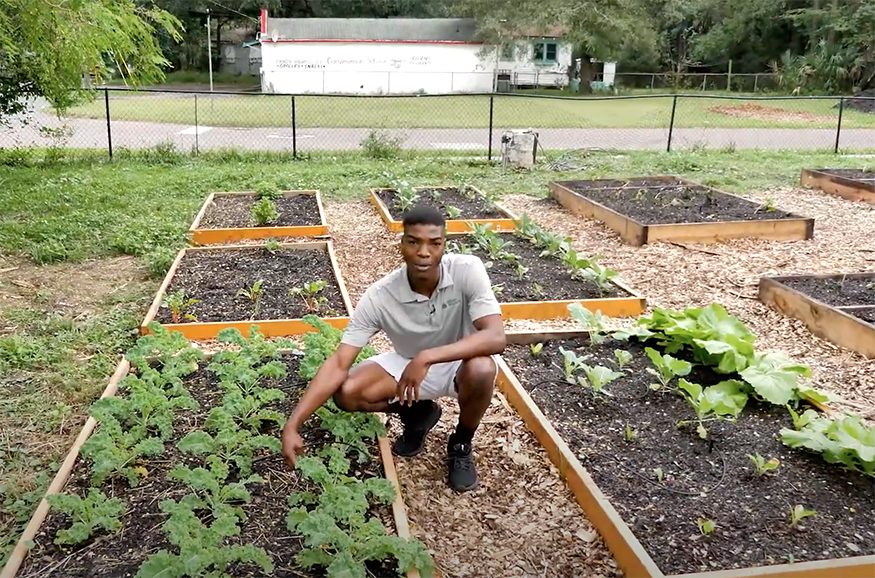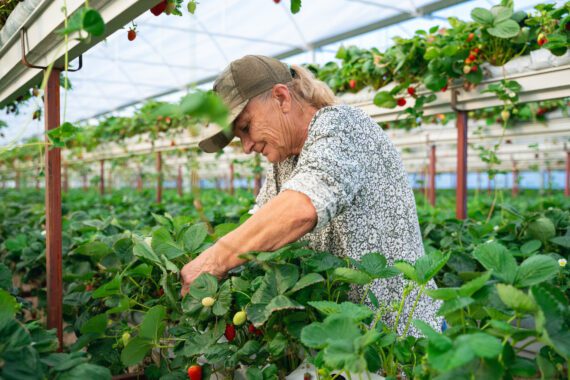By Todd Post
For the better part of the last decade, Bread for the World has been helping members understand the U.S. racial wealth gap, including through an interactive simulation. The reauthorization of the farm bill, scheduled for 2023, offers an opportunity for advocates to put what they’ve learned to use in advocating for farm policy that is more racially equitable.
In the early 20th century, Black farmers were 14 percent of all U.S. farmers, and agriculture was the main way for Black families in the South to earn a living. Many dreamed of owning a piece of land themselves, leaving their sharecropping days in the past to build wealth to pass down to their children and grandchildren.
But racist federal government policies made successful farming difficult if one already owned land, and nearly impossible if one did not. Legions of Black farmers lost their land when the U.S. Department of Agriculture (USDA) denied them loans or delayed processing the loans until it was too late in the season to plant crops. Other farmers remained trapped in the debt bondage of sharecropping.
These policies affect Black farmers to this day. Less than 2 percent of U.S. farmers are Black, largely because paths to economic independence were closed to Black citizens in the rural South, leading millions to leave the region as part of the Great Migration (1910-1970).
A new, younger group of Black farmers has emerged in the 21st century, undeterred by the discriminatory treatment and hardships endured by older generations. Most new farmers belong to Generation X or the Millennial generation. Many grew up in food deserts, and now they are determined to help ensure that their communities obtain and maintain access to healthy foods.
Organizations such as Wealth Watchers Inc., based in Jacksonville, Florida, work to connect Black farmers with programs and resources available through USDA. Hurtis Wyche, an outreach specialist with Wealth Watchers, has helped farmers obtain funding for fencing, irrigation, and high tunnel systems (which use temporary structures to protect plants, effectively extending the growing season).
Wyche works with 10 to 15 farmers at a time. In the past several years, Wealth Watchers has served several hundred farmers through its Comprehensive Rural Opportunities Program (CROP).
Wealth Watchers is cultivating the next generation of Black farmers. The organization recruited Wyche as an outreach specialist after noticing his work in managing a community garden in the New Town neighborhood of Jacksonville. This is the neighborhood where he grew up. It remains a food desert, and the community garden was developed to help supply fresh produce to the neighborhood.
Now, Wyche works alongside children in the community, passing along both his love of farming and his knowledge of growing vegetables and fruits.
The plight of Black farmers in the United States is a seminal example of how systemic racism has stripped wealth from Black families over generations. USDA acknowledges the agency’s shameful record of racism, and its current leadership is taking steps to gain the trust of Black farmers. The farm bill offers legislators an opportunity to undo some of the profound consequences of racist policies.
The farm bill is not the only vehicle the federal government can use to begin to repay Black farming families and former farming families, but it is an important one.
When older Black farmers are invited to share their views, they frequently emphasize the importance of supporting the younger generation of Black farmers. Structural racism and plain indifference are the enemies. They are concerned that Black farmers, their numbers already much reduced, will soon be essentially an endangered species in U.S. agriculture.
At a minimum, the U.S. government should provide Black farmers with opportunities and tools to enable both new and experienced farmers to remain in the field of agriculture. One important vehicle to deliver this support—directly to Black farmers and to indispensable community organizations such as Wealth Watchers—is the new farm bill slated for passage in 2023.
Todd Post is senior domestic policy advisor with Bread for the World.



